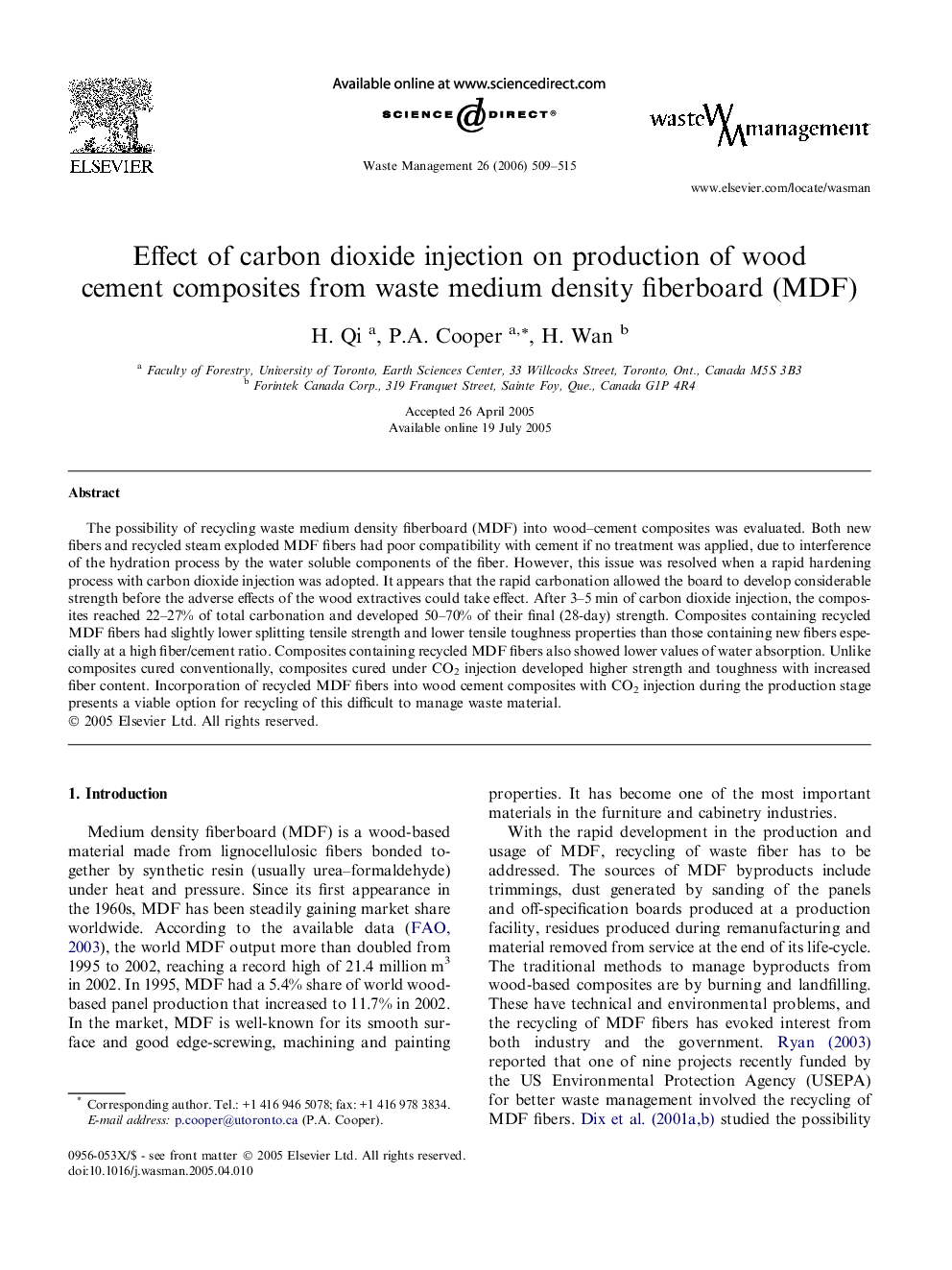| Article ID | Journal | Published Year | Pages | File Type |
|---|---|---|---|---|
| 4474043 | Waste Management | 2006 | 7 Pages |
The possibility of recycling waste medium density fiberboard (MDF) into wood–cement composites was evaluated. Both new fibers and recycled steam exploded MDF fibers had poor compatibility with cement if no treatment was applied, due to interference of the hydration process by the water soluble components of the fiber. However, this issue was resolved when a rapid hardening process with carbon dioxide injection was adopted. It appears that the rapid carbonation allowed the board to develop considerable strength before the adverse effects of the wood extractives could take effect. After 3–5 min of carbon dioxide injection, the composites reached 22–27% of total carbonation and developed 50–70% of their final (28-day) strength. Composites containing recycled MDF fibers had slightly lower splitting tensile strength and lower tensile toughness properties than those containing new fibers especially at a high fiber/cement ratio. Composites containing recycled MDF fibers also showed lower values of water absorption. Unlike composites cured conventionally, composites cured under CO2 injection developed higher strength and toughness with increased fiber content. Incorporation of recycled MDF fibers into wood cement composites with CO2 injection during the production stage presents a viable option for recycling of this difficult to manage waste material.
